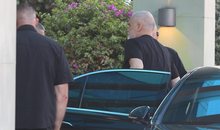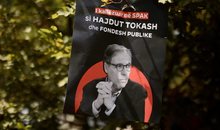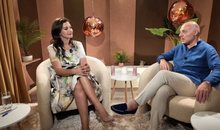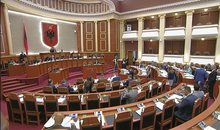

Violent clashes have occurred in Kosovo between ethnic Serbs and police belonging to the Kosovo government.
NATO is sending 700 additional troops to the country after more than 30 of its peacekeepers were injured, writes the BBC . The clashes followed a disputed local election and there are fears the violence could escalate.
Where is Kosovo and who lives there?
Kosovo is a small, landlocked country in the Balkans in Southeastern Europe. It borders Albania, North Macedonia, Montenegro and Serbia.
Many Serbs consider it the birthplace of their nation. But of the 1.8 million inhabitants living in Kosovo, 92% are Albanians and only 6% are Serbs. The rest are Bosniaks, Gorans, Turks and Roma.
How did Kosovo gain independence?
After the breakup of Yugoslavia in the 1990s, Kosovo - a province of the former country - demanded its autonomy and independence.
Serbia responded with a brutal crackdown on ethnic Albanians seeking independence. This ended in 1999 with a NATO bombing campaign against Serbia between March and June.
Serbian forces withdrew from Kosovo - but for many Kosovo Albanians and Serbs, the conflict has never been resolved. The NATO-led Kosovo Force (KFor) is still based in Kosovo, with a current strength of 3,762.
In 2008, Kosovo unilaterally declared independence.
A total of 99 out of 193 United Nations (UN) countries now recognize Kosovo's independence, including the US, Great Britain and 22 out of 27 European Union (EU) countries.
But Russia and China, which do not do this, have blocked Kosovo's membership in the UN.
And Serbian President Aleksandar Vučić has vowed that Serbia will never recognize Kosovo as an independent country.
Neither Kosovo nor Serbia are in the EU - but:
• Serbia is a candidate country for the EU since 2012
• Kosovo has officially applied for EU membership in December 2022
The EU membership process can take years or even decades.
Why is the trouble now?
Relations between the Albanian-dominated government and the Serbian minority have been strained for years.
Në qendër të përplasjeve të fundit janë zgjedhjet e diskutueshme lokale në veri të vendit, të bojkotuara nga një popullsi shumicë serbe që jeton atje.
Katër kryetarë komunash shqiptarë etnikë u zgjodhën me një pjesëmarrje prej më pak se 4%. Ata u shoqëruan në zyrat e tyre nga policia e armatosur e Kosovës, duke provokuar përleshje të dhunshme me serbët vendas.
NATO po dërgon 700 trupa të tjera në vend, pasi disa ushtarë paqeruajtës të saj u plagosën në përleshjet.
A janë të përfshirë Serbia dhe Rusia në dhunë?
Ministri i Jashtëm rus Sergei Lavrov tha se tensionet ishin alarmante dhe mund të çojnë në një "shpërthim të madh" në zemër të Evropës.
Kosovo President Vjosa Osmani claimed in February that mercenaries from Russia's Wagner group were working with Serbian paramilitaries to smuggle weapons and unmarked military uniforms into Kosovo, in preparation for a possible annexation of Kosovo territory.
There is no evidence to substantiate the claims.
Serbian President Aleksandar Vučić put the country's army on full combat alert and ordered its units to move closer to the border with Kosovo. But he also told Serbian media that he is looking for a political solution to the tensions.
Latest news


Trump says he's ready to raise tariffs to 70% on some countries
2025-07-04 22:35:52
Tre shenjat e zodiakut që do ‘pasurohen’ në Korrik
2025-07-04 22:05:09
Gaza War: Hamas Accepts US Proposal for 60-Day Ceasefire
2025-07-04 21:50:10
Autocracy in Albania, Fuga: Governance has gotten out of control
2025-07-04 21:40:51
Meta: Agriculture on credit, the new fraud!
2025-07-04 21:26:39




Vote recount in Durrës ends without changes
2025-07-04 20:12:54
Gas station explodes in Rome, 25 injured (VIDEO)
2025-07-04 20:00:20

These afternoon habits often sabotage weight loss
2025-07-04 19:39:28
Former Arsenal player Thomas Partey accused of rape
2025-07-04 19:24:21
Shepherd disappears without a trace in Delvina
2025-07-04 19:14:31

Bardho gave Zegjine's mandate/Braho: Unfair! It violates the electoral system
2025-07-04 19:01:08


Rapid developments in the Sultanates!
2025-07-04 18:00:06



Italy tightens rules for skateboard traffic
2025-07-04 17:20:18

Unusual for the time, dense fog covers the coast of Vlora
2025-07-04 16:48:01


Accident on the Shkodra-Lezhë axis, one dead and 3 injured
2025-07-04 16:14:19
Albania with fewer requests for asylum and Albanian citizenship in 2024
2025-07-04 16:06:57

Albania last for quality of life, DP: Technical government is the solution!
2025-07-04 15:42:30
Nico Williams says "No" to Barcelona, signs with Athletic Club until 2035
2025-07-04 15:33:35
Fires in the country, four fires are still active, what is the situation?
2025-07-04 15:24:20

Summer brings big changes for these 4 zodiac signs
2025-07-04 15:00:04
Osmani: MPs need to agree to a secret ballot for the Speaker of Parliament
2025-07-04 14:51:09
Serious accident on the Peqin-Elbasan axis, two injured
2025-07-04 14:37:56

GJKKO leaves in force the security measure for the head of the KPP
2025-07-04 13:58:17
Who will replace Ilir Meta and take over the leadership of the PL?
2025-07-04 13:50:36
Berisha: Dismissal of directors in Vlora, another act of 'scapegoats'
2025-07-04 13:41:46




Librazhd/ In a serious psychological state, the young man consumes pesticides
2025-07-04 13:05:07


Weapons trafficked from Kosovo to Albania, two arrested, 8 pistols seized
2025-07-04 12:33:28
Konsumimi i tepërt i çokollatës, ja cilat janë dëmet që shkakton në organizëm
2025-07-04 12:23:35

Fires in the country, 21 fires in the last 24 hours, 4 still active
2025-07-04 12:00:19
WB calls for debt transparency: Albania to publish details of every loan
2025-07-04 11:50:05
Changes in the State Police, new names expected to lead 5 police stations
2025-07-04 11:40:06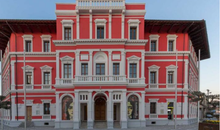
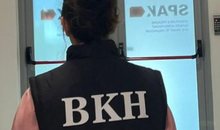
The race for the head of the BKH, the third phase on July 11
2025-07-04 11:20:23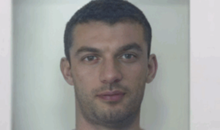
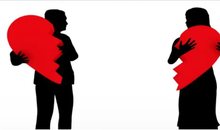
Toxic phrases that show your relationship is in trouble
2025-07-04 11:00:10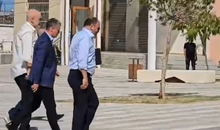
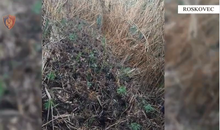
2 brothers arrested in Roskovec, cultivating narcotic plants
2025-07-04 10:38:08
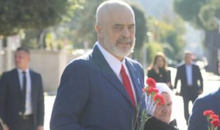
Celebrating his 61st birthday today, Rama is surprised at the pink headquarters
2025-07-04 10:21:46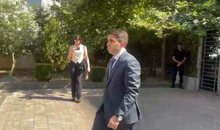
Suspended from duty 4 days ago, Jonaid Myzyri appears before the Criminal Court
2025-07-04 10:16:27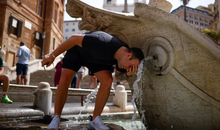
Heat wave/ 5 deaths in Italy from high temperatures
2025-07-04 10:07:55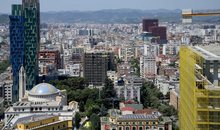
Economy slows, telecommunications joins agriculture and industry in recession
2025-07-04 09:58:13
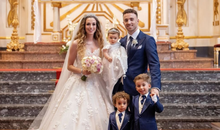
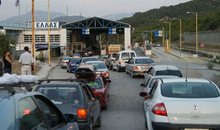
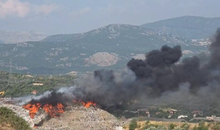
Fire continues at Elbasan incinerator, toxic smoke endangers citizens' health
2025-07-04 09:19:06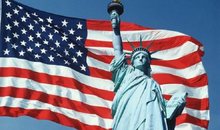
The USA celebrates its 249th anniversary of Independence
2025-07-04 09:09:22
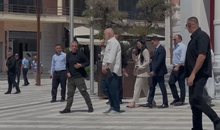
After Rama's ultimatum, all directors of the Vlora municipality resign
2025-07-04 08:46:30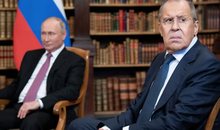
Russia, the first country in the world to recognize the Taliban government
2025-07-04 08:37:20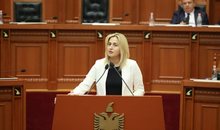
10 facts about the 10th legislature!
2025-07-04 08:21:35
Foreign exchange/ How much foreign currencies are bought and sold today
2025-07-04 08:01:50
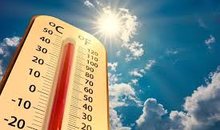
Weather forecast for today
2025-07-04 07:36:43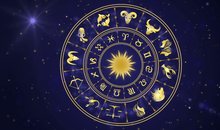
"Don't be afraid", here's what the stars have predicted for each sign
2025-07-04 07:21:48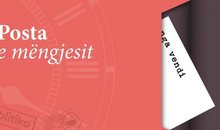
Morning Post/ In 2 lines: What mattered yesterday in Albania
2025-07-04 07:03:17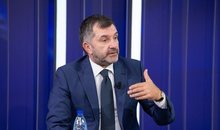
Bushati: Zegjineja, a book piloted by Rama
2025-07-03 22:57:30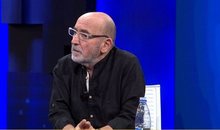
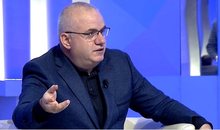
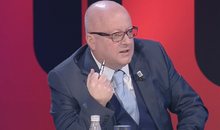
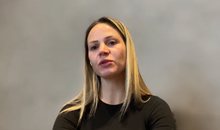
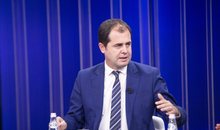
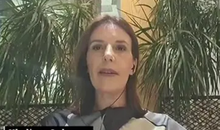
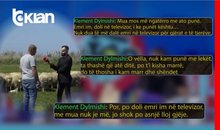
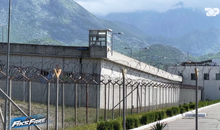

Greece imposes fee to visit Santorini, how many euros tourists must pay
2025-07-03 20:50:37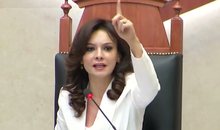
Don't make fun of the highlanders, Elisa!
2025-07-03 20:43:43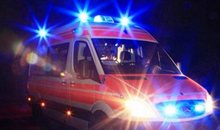
Gunfire in Durres, a 30-year-old man is injured
2025-07-03 20:30:52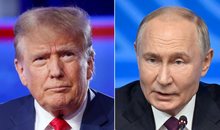
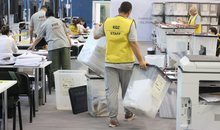
The recount in Fier cast doubt on the integrity of the vote
2025-07-03 20:09:03